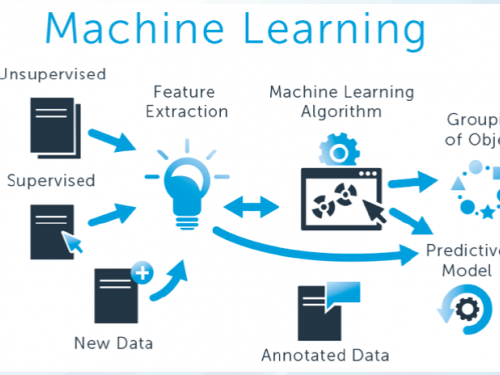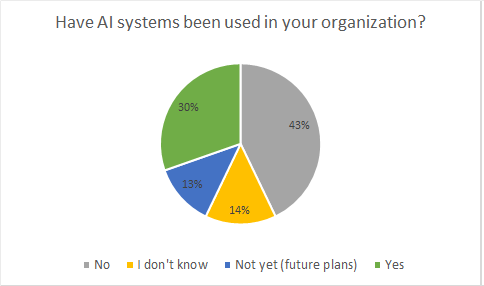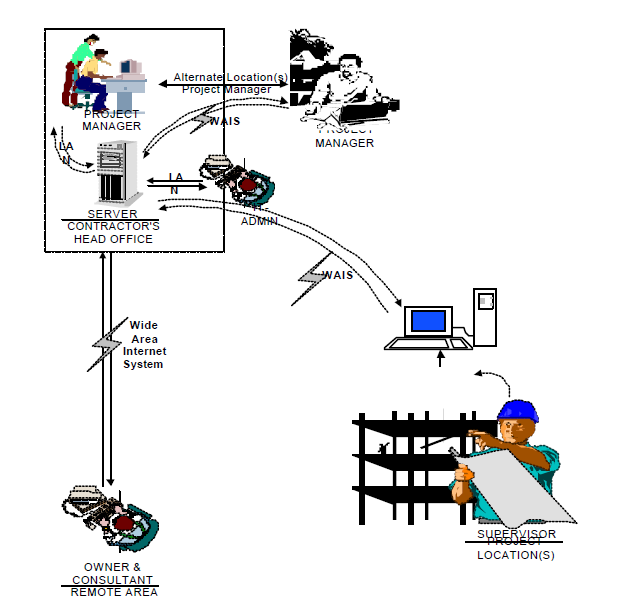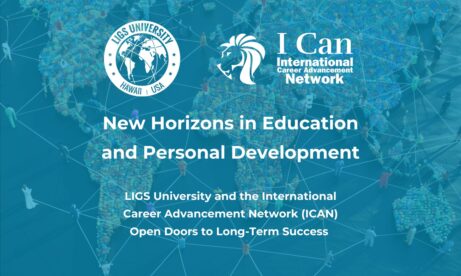
The Role of Artificial Intelligence in Improving Project Management
The world is currently undergoing a lot of changes with technology continuously being evolved with an aim of improving people’s life. Technological advancement has made what seemed impossible in the last decade a part of today’s life. Issues that were difficult and complex have now become simple although other areas have also become increasingly complex. It is worth noting that every profession is subject to the dynamism resulting from technological advancement.
Different industries are employing technology with the aim of improving efficiency and effectiveness while enabling management to be dependable, secure, and acquiescent. Integration of human capabilities and technical systems has resulted in enhanced performance and motivated culture with everyone being involved hence ensuring continuous improvement (Munir, 2019). Integration of technology and human capabilities has also been applied in project management. Project management is characterized by three pillars (Andrew Edkins, 2017):
- Presence of strong and effective project managers,
- Availing project managers with an environment that is conducive to success.
- Ensuring accountability in the entire organization.
AI acts to augment human capabilities. This article studies the role of artificial intelligence in project management including its application in project management while investigating the benefits of integrating AI in project management. In addition, it examines how AI facilitates excellence in the field of project management.
AI has various tools including Chatbots, Stratejos, ZiveBox, Rescoper, ClickUp, Clarizen, and PolyOne which assist project managers in handling differing tasks (Lahmann, Keiser, et al., 2018). For instance, they help the manager in composing the project team as well as in assigning roles and responsibilities to individual team members(Butt, 2018). AI tools are also helpful in ensuring project managers effectively manage and adhere to deadlines. There are numerous benefits that project managers draw from the use of artificial intelligence. First, AI provides support to project managers. This is because it eases the burden and pressure of project management through the application of machines. AI is also helpful in providing project managers with accurate of results since the tasks performed using AI do not have mistakes and errors (McCarthy, 2007). In addition, the use of AI helps project managers with insight and strategizing. For example, an AI tool is able to suggest alternative or additional steps to project managers who are handling very difficult projects. In addition to helping project managers in performing the above tasks, it also enhances effectiveness and efficiency hence increasing project managers’ productivity through enhancing their creativity while adding to their emotional intelligence (Abduh & Soemardi, 2002).
Literature Review
AI Project Management
Project management AI can be viewed as an incorporated system capable of administering a project without requiring human assistance. Using the power of AI does not entail automating tasks but involves making inferences from differing insights and hence making process recommendations, making project-related decisions, and unveiling team insights (Schreck et al., 2018). For example, owing to technological advancement, there is bound to be specific technology able to match the right skills and responsibility to the right resources in the future. There has been increased investment in technology by human resources departments with an aim of improving their hiring processes.
According to (Helsgaun, 2008) firms that employ AI in their recruitment processes are likely to experience a 20 percent improvement in employee performance. On the other hand, (Auth et al., 2019) argues that the use of AI in recruitment results in a 4 percent improvement in revenues with the rate of employee turnover declining by about 35 percent. This is essential in significantly decreasing the amount of idle time by employees. Using AI, project managers do not have to make extra efforts as using AI, they are able to study team members’ output and can also regularly assign work based on individual team members’ capability. AI is also helpful in creating a knowledge management ecosystem which is essential in storing knowledge that can be utilized when an employee leaves the organization. Based on(Olaf Passenheim, 2002), AI is also useful in the aggregation of workplace behavioral patterns while centralizing workers’ knowledge which is essential in improving quality and consistency with regard to project management.
Creation of knowledge management ecosystem
In project management, AI is also employed in aggregating a variety of behavioral patterns in the workplace and is also helpful in the centralization of workers’ knowledge with an aim of quality improvement and consistency (Andrew Edkins, 2017). When changes are foreseen, AI is also helpful in preventing the reinvention of something. Although this is majorly theory, this function will become available and affordable to business enterprises in the future.
Foster a safe environment
For those projects that require differing work conditions, the application of AI helps in detecting invisible warning signs regarding the likelihood of accidents during project implementation. For example in managing construction projects, AI is able to monitor an equipment’s performance, detect the unsafe working environment, detect differing facial impletion by employees in predicting their performance, monitor the air quality, and alert participants of accident possibilities as stated by (Tonchia, 2018).
Delivering untiring objectivity and vigilance
While identification of quality and accuracy deliverables could be tedious for project managers, AI systems do not experience fatigue, they do not give excuses, and they do not compromise or get tired performing the project (Wang, 2019). It is difficult to find a system that combines all the above characteristics. However, employing AI provides project managers with project-enhancing AI benefits (Hennings & Munter, 1985). There are very few project management AI tools because the industry has been very slow in adopting artificial intelligence and machine learning (Mohamed & Khan, 2017).
Research Methods
Generally, there are two types of research methods including quantitative and qualitative research methods. The quantitative research method employs numerical data in performing mathematical analysis. Qualitative research on the other hand employs research data which includes opinions, words, and expressions in coming up with conclusions regarding the research in question. The current research employs qualitative research in analyzing how the application of AI in project management helps project managers. The essence of employing qualitative research in this study is that it is exploratory in nature (Magaña Martínez & Fernandez-Rodriguez, 2015).
There are three reasons that explain why the qualitative method was employed in this research. First, using qualitative methods makes it possible to interpret opinions, reasons, and motivations. The use of the qualitative method is also helpful in problem-solving while assisting in the hypothesis development of ideas for a future quantitative study (Lahmann, Keiser, et al., 2018). The qualitative method has also been found useful in the development of the detailed interpretation of research issues with prevailing significant perspectives and ideas trends. This study has employed the qualitative method as a way of capturing expressive data including underlying conducts, beliefs, feelings, motivations, and values that cannot be captured if quantitative methods were to be employed (Salini et al., 2015).
The study is divided into six sections. The first section generally deals with what artificial intelligence in project management entails. The section has also identified the benefits that accrue from using AI in project management. The second section makes a general observation on how AI is beneficial to project managers. The third section analyses different artificial intelligence tools that could be of help to project managers with section four analyses the possible benefits of applying the different AI tools in project management. Section five analyzes the benefits that accrue from the use of AI in project management for instance how AI enhances project managers’ productivity while section six investigates the various risks that accrue from using AI in project management.
Fundamentals of AI
The application of technology is essential in making people’s lives easier while enhancing the convenience of processes that require significant human effort and time without technology (Kutschenreiter-Praszkiewicz, 2009). The application of AI which combines machine learning and decision-making capabilities and integrates it with human capabilities is the next evolution step underway (Humanly, 1995). AI is useful in making the performance of routine and cyclic tasks, particularly those that involve a number of assembly lines easier.
AI was developed for a variety of reasons including Cybersecurity issues management, diagnosing medical conditions, and wildlife tracking among other uses (Lahmann, Keiser, et al., 2018). It should however be noted that the concern that AI may one day surpass human intelligence and hence their contribution to the workplace has been a major obstacle to its adoption. This is because of AI’s ability to undertake tasks that have been previously undertaken by human beings (Seedahmed, 2019).
On the bright side, AI has been employed in performing tedious and time-consuming tasks thus allowing humans to have free time and hence perform tasks that cannot be automated. With regard to the project and artificial management, considerable progress has been made although a lot of ground is yet to be covered.

Figure (1): Machine Learning: application of artificial intelligence (AI )(Seedahmed, 2019).
The field of project management is slowly adopting artificial intelligence and professionals in the field are showing increasing interest (Duchessi et al., 1993). Among the major fields within which artificial intelligence is employed is project management. (McCarthy, 2007) identifies a number of benefits that project managers get from using AI. AI can generally be described as the intelligence shown by machines. With regard to the field of project management, machines are able to copy cognitive functions that are linked to the mind of the project manager such as making of decisions and solving problems. Various search engines and speech recognition systems including Google and Siri among others employ AI principles in performing their functions (Lahmann, Keiser, et al., 2018).
AI concepts are also employed in self driving cars in doing military exercises simulation and content delivery networks. It is very hard for computers to perform better than humans in such strategic games like chess. However, the general aim of AI is the development of computers and machines which are able to work in the best way possible (Vesma, 2009). This entails employment of strategies for optimization, automation intelligence and mathematical methodologies. Based on (Munir, 2019), programming’s of AI strategies call for technological interpretation in addition to psychology, neuroscience and linguistics interpretation. With regard to application of AI, being able to precisely define the project managers’ mind in a manner to allow simulation using the techniques mentioned above remains questionable. This will be possible with time and the possibility is increasing due to the development and use of microcomputers, machine learning technology advancement and employment of cloud computing (Duchessi et al., 1993). The current study analyzes how AI is useful to project managers.
The essence of the study is because the technological field is dynamic and there has much development in the project management field. Given the importance of the tasks performed by project managers, it is important that such tasks be performed efficiently and effectively (Vesma, 2009). With technological advancement, a number of technological innovations have been developed to aid project managers in this respect based on (Anastasi et al., 2011). As such, this study aims at analyzing how AI helps managers.
Assistance to Project Managers
There have been some AI applications that have been developed with an aim of facilitating project managers’ work. This has resulted in emerging competing constraints which when combined with contemporary constraints complicates the process of analyzing tradeoff. Employment of various AI tools by project managers is expected to make project management easier than it has ever been. According to (McCarthy, 2007), that constraints and assumptions given to project team at the project’s beginning do not change within the project’s lifecycle has always been taken for granted.
This has since been proved wrong and all constraints and assumptions tracking need to happen in the entire project’s lifecycle and this is where AI finds increased use (Abduh & Soemardi, 2002). For instance, executives are always not aware of when they can intervene during the project’s implementation. Some of the AI tools being employed by most organizations include crises dashboards. By observing the crises dashboards over the computer, executives are able to identify projects faced with different issues and which of the project’s constraints are not within the required level and the projects that could be regarded as being at critical level (Tonchia, 2018).
Thus, using AI, executives are able to identify projects that need immediate action and the specific actions that project managers need to take and at which stage of the project implementation the action ought to be taken according to (Hennings & Munter, 1985). This is essential in significantly reducing response time to the project issues identified to be out of the acceptable range.

Figure (2): Use the percentage of AI system within organizations (BUTT, 2018)
It may be hard for executives to determine the amount of work to be done or to be scheduled without having labor constraints. Additional work is generally conducted within schedule without regard to technological requirements, skills requirements and resource constraints devoid of AI (Andrew Edkins, 2017). AI helps in helps in developing the project portfolio that enhances the project’s probability of increasing value for the organization in addition to identification of effective resource management practices. It is worth noting that some software algorithms have been developed for this purpose (Salini et al., 2015). However, project scheduling and optimization practices still remain manual and employ trial and error strategies.
Based on (Magaña Martínez & Fernandez-Rodriguez, 2015), employing AI in project management helps in improving schedule optimization effectiveness through identification of all the organization’s current and future ongoing projects as opposed to only considering some specific projects. Without employing AI, project managers are always under increased pressure to rapidly make decisions based on intuition as opposed to employing automated deduction (Humanly, 1995). This assumes that everything is generally false or true in making the assumptions. With more information being availed, few assumptions will be made.
AI avails enough database with regard to specific information and hence is enhances problem solving and reasoning based on partial information (Butt, 2018). AI enables forecasting about the future while providing options that enhance the value of the decisions made. Using the various AI tools with more information results in better decision outcomes according to(Schreck et al., 2018). This calls for consolidation of intellectual property of project management and acquiring information access for AI tools as the initial point.
Advantage of the AI Tools to Project Managers
Support
AI provides support for project managers through issuing of automated alerts and work scheduling which is essential for performance of routine procedures. In addition, AI provides workforce support by making some of the complicated work processes easier which helps in saving time and assists in performance evaluation. Based on (Tonchia, 2018), application of AI in project management helps in results quantification and analysis thus helping come up with innovative ways of executing projects. AI solutions also provide project managers with decision useful information which results in more effective and efficient project implementation in future (Lahmann, Probst, et al., 2018).

Figure (3): The AI Project Manager(Schreck et al., 2018).
Accuracy
Data entry with regard to project management is disreputably patchy. Some employees may be highly diligent to an extent of giving minute details regarding tasks and time while others may not be as diligent. In this regard, AI provides enhanced assistance on the basis of the data available while enabling users generate more accurate data according to (Seedahmed, 2019). The enhanced accuracy facilitates project managers in avoiding costly mistakes in the course of project implementation (Lahmann, Keiser, et al., 2018).
Insight and strategy
Digital technology is has more independence with regard to automation, crunching and related routine undertakings although with regard to project management and AI, there has been increased adoption with machinery performing some difficult tasks previously undertaken by human beings. AI now assists management by issuing alerts regarding approaching deadlines while assisting them in composing various project teams and assigning roles to specific team members on regular basis according to (Lahmann, Probst, et al., 2018). This is the AI course set. These machine and software capabilities help in collating data that is useful in forecasting. Testing of differing prototypes calls for application of a variety of programs (Seedahmed, 2019). By employing AI, software developers are able to conduct a variety of prototype testing before the prototypes can be released. AI also helps project managers in reducing errors and fines associated with projects before they can be launched (Munir, 2019).
Increased Productivity of Project Managers
As stated above, application of AI in project management enhances the project managers’ productivity.
Eliminating Information Bias
Given that human beings are naturally emotional, they are bound to allow individual biases to have a bearing on their decision making even when numbers are involved. AI helps in elimination of such biases (Humanly, 1995). This implies that by using AI, project managers achieve increased accuracy devoid of human errors and biases.
Use Emotional Intelligence
Project managers are bound to get fatigued with numbers while still managing human resources. However, AI assists them by crunching numbers which rely on large amounts of data while leaving human management aspects to the managers (Duchessi et al., 1993). With AI, project managers are able to establish patterns more efficiently. For example, in just three seconds, IBM’s Watson is able to read 22 million pages of text according to (McCarthy, 2007). Meanwhile, managers can focus on human aspects of project management including allocating staff based on their skills to specific projects. AI is also helpful in task identification for all projects while assisting in actual progress monitoring. Such decisions are number dependent (Munir, 2019).
However, application of AI is deemed more important in cases involving interpersonal links between differing team members according to (Salini et al., 2015). This is because although a project may be financially viable on paper, its actual implementation may turn out to be a disaster when team members are unable to effectively work as a team. In this regard, AI acts to provide emotional intelligence and hence creates the freedom to redirect time and energy necessary in such situations by ensuring that the team is computed in a manner that makes it most effective (Kutschenreiter-Praszkiewicz, 2009).
Be Creative
It is also worth considering how and where AI can help businesses and how the project manager can apply it in an innovative way (Duchessi et al., 1993). AI helps in projecting about future outcomes and trends where large amount of data is involved. However, such projections can only be helpful if they can be put into innovative use. For example, (Auth et al., 2019), argue that AI can be employed in accurately projecting monthly financial performance accurately.
In this regard, project managers can employ AI resources in projecting and planning for the future thus enhancing their creativity. AI thus provides them with the help they require without necessarily having to hire full time employees (Wang, 2019). This human centric solution is an example of the critical use into which project managers can put AI into. Increased automation in the organization has made every stakeholders work effective and efficient. For instance, (Anastasi et al., 2011) notes that every work is now being done over google drive or word as opposed to computing reports by typing on the typewriter or writing on a paper.
The same applies to AI and project management in that AI assists project managers in being more efficient and effective.
Limitations and Future Research
That this study failed to identify the major risks regarding application of AI in project management is its major limitation. Despite the various benefits that AI brings to project management, it is obvious that it also introduces some risks for the field. Today’s machines have become increasingly agile to an extent that they are adapting real-time without need for programming as far as some works are concerned according to (Salini et al., 2015). On the other hand, (Munir, 2019) states that machines are mow more efficient, they are able to analyze more data and provide more accurate results compared to humans.

Figure (4): Web-based Project Planning and Control Systems (Abduh & Soemardi, 2002).
As a result of AI adoption in project management, a good portion of jobs have now been phased out by machines. Breakdown on communication is one of the major causes of project failures cited by project managers using AI (Lahmann, Keiser, et al., 2018). As such, there is need for development of AI systems able to communicate with each other effectively with the results being further communicated to users. Thus, although there are numerous advantages associated with the use of AI in organizations, some risks are also involved (Andrew Edkins, 2017). However, these risks have not been discussed in this study. It is thus recommended that future studies should dwell on the risks associated with application of AI in project management.
Conclusion
This essay concludes that this is the technological advancement era. Every professional field has experienced increased technological advancement, and this has led to better lives for human beings. Technological advancement has led to the development of data science and big data which employ AI as their backend. AI has been defined as devices that assist in making various perceptions regarding the environment while helping in adopting actions that increase the probability of goals achievement. Various fields are now applying AI.
However, the project management field is particular experiencing increased adoption of AI. In this regard, AI is helping in the administration of differing projects at the same time while employing the limited resources available. Application of AI is useful in enhancing environment safety in addition to assisting develop a knowledge management ecosystem. As such, it can be concluded that AI assists project managers in differing ways by employing different tools for accomplishing different tasks.
Such tools include hatbots, Strategjos, ZiveBox, Rescoper, ClickUp, Clarizen and PolyOne. Chatbots are useful in the identification of urgent tasks as well as those that need to be accomplished concurrently. Strategies is useful in development of agile models while Zivebox helps in estimation of project completion time. Too Rescope on the other hand is useful in handling of tedious managerial parts while issuing system alerts and identifying whether projects can be completed within or out of schedule. Click Up tools are employed in prediction the number of individuals to be involved in a particular project with Polydent helping in project time and budget management. Tool Clarizen is useful for easier data tracking and sharing.
Thus, AI implies increased project manager support, enhanced accuracy, strategy and insight. Use of AI in project management has enhanced project managers’ productivity. It has also enhanced project managers’ emotional intelligence and creativity while eliminating individual biases in decision making. On the centrally, there are various risks that have resulted from AI adoption in project management. For instance, it is feared that machines will gradually replace project managers. This should be the focus of future research.
Bibliography
Abduh, M., & Soemardi, B. W. (2002). Web-Based Project Management Applications in construction. World Wide Web Internet And Web Information Systems.
Anastasi, G., Corucci, F., & Marcelloni, F. (2011). An intelligent system for electrical energy management in buildings. International Conference on Intelligent Systems Design and Applications, ISDA, Nov 2011, 702–707. https://doi.org/10.1109/ISDA.2011.6121738
Andrew Edkins. (2017). Future of Project Management. Andrew Edkins, 68. https://www.arup.com/-/media/arup/files/publications/f/arup_future-of-project-management2.pdf
Auth, G., Jokisch, O., & Dürk, C. (2019). Revisiting automated project management in the digital age – a survey of AI approaches. Online Journal of Applied Knowledge Management, 7(1), 27–39. https://doi.org/10.36965/ojakm.2019.7(1)27-39
Butt, A. (2018). Project Management through the lens of Artificial Intelligence – A Mixed-Methods Research into How AI Systems can Support Project Managers to become more Efficient in their Daily Work. 64. http://publications.lib.chalmers.se/records/fulltext/256311/256311.pdf
Duchessi, P., O’Keefe, R., & O’Leary, D. (1993). A Research Perspective: Artificial Intelligence, Management and Organizations. Intelligent Systems in Accounting, Finance and Management, 2(3), 151–159. https://doi.org/10.1002/j.1099-1174.1993.tb00039.x
Helsgaun, K. (2008). Ten Project Proposals in Artificial Intelligence. 1–34. https://www.researchgate.net/publication/249911752_Ten_Project_Proposals_in_Artificial_Intelligence.
Hennings, R.-D., & Munter, H. (1985). Artificial Intelligence 1. Expertensysteme. 3(3), 351.
Humanly, A. (1995). Chapter 1 : Application of Artificial Intelligence in Construction Management. 1–14.
Kutschenreiter-Praszkiewicz, I. (2009). Application of artificial intelligence in project management under risk condition. Applied Computer Science, 5, 69–80.
Lahmann, M., Keiser, P., & Stierli, A. (2018). Transformation Assurance: AI will transform project management. Are you ready? 1–16. https://www.pwc.ch/en/insights/risk/transformation-assurance-ai-will-transform-project-management-are-you-ready.html.
Lahmann, M., Probst, M., & Manager, S. P. (2018). Artificial Intelligence and Project Management : Beyond Human Imagination ! The future of project management.
Magaña Martínez, D., & Fernandez-Rodriguez, J. C. (2015). Artificial Intelligence Applied to Project Success: A Literature Review. International Journal of Interactive Multimedia and Artificial Intelligence, 3(5), 77. https://doi.org/10.9781/ijimai.2015.3510.
McCarthy, J. (2007). What is Artificial Intelligence (AI)? Url:, 1–11. http://ocw.mit.edu/courses/electrical-engineering-and-computer-science/6-825-techniques-in-artificial-intelligence-sma-5504-fall-2002/lecture-notes/Lecture1Final.pdf
Mohamed, A., & Khan, M. T. (2017). A review of electrical energy management techniques: supply and consumer side (industries). Journal of Energy in Southern Africa, 20(3), 14–21. https://doi.org/10.17159/2413-3051/2009/v20i3a3304
Munir, M. (2019). How Artificial Intelligence Can Help Project Managers. 19(4).
Olaf Passenheim. (2002). Project Management Project Management (Vol. 33, Issue 3).
Salini, R., Xu, B., & Lenngren, C. A. (2015). Application of artificial intelligence for optimization in pavement management. International Journal of Engineering and Technology Innovation, 5(3), 189–197.
Schreck, B., Mallapur, S., Damle, S., James, N. J., Vohra, S., Prasad, R., Veeramachaneni, K., & Doe, J. (2018). The AI Project Manager. IEEE International Conference on Big Data. https://www.featuretools.com/wp-content/uploads/2018/03/AIPM.pdf
Seedahmed, A. E. (2019). Artificial Intelligence ( AI ) in Project Management.
Tonchia, S. (2018). Management for Professionals Industrial Project Management Management for Professionals.
Vesma, V. (2009). Energy Management Principles and Practice (A Companion to BS EN 16001:2009). September, 1–20. http://group.skanska.com/globalassets/sustainability/environmental-responsibility/energy/energy-management-bip2187.pdf
Wang, Q. (2019). How to apply AI technology in Project Management. PM World Journal, VIII(III (April)), 1–13. https://pmworldlibrary.net/wp-content/uploads/2019/03/pmwj80-Apr2019-Wang-how-to-aply-AI-in-project-management.pdf
Author: Sulaiman Elrajoubi, student at LIGS University, under the supervision of Dr. Minh Nguyen.



